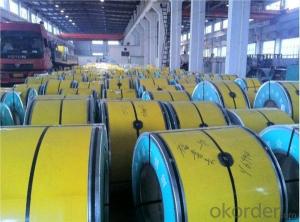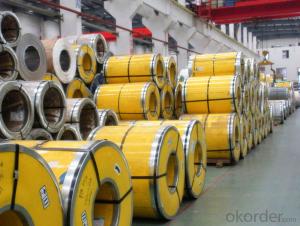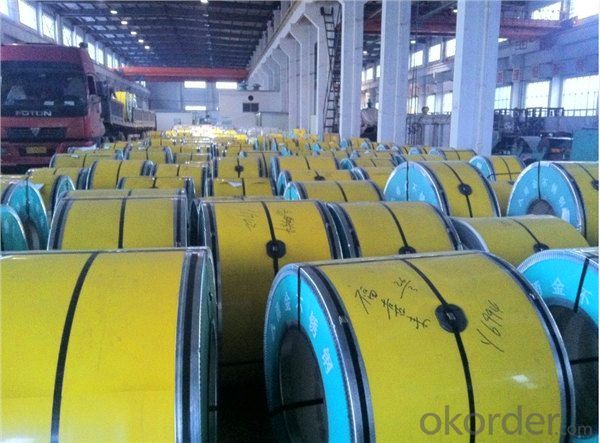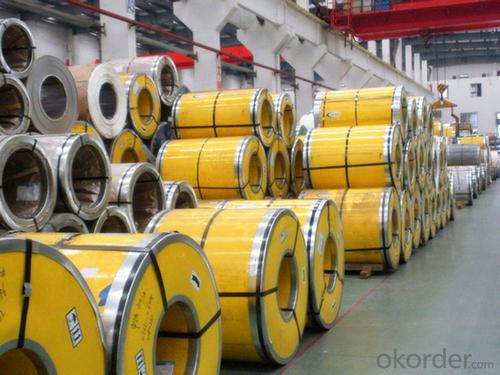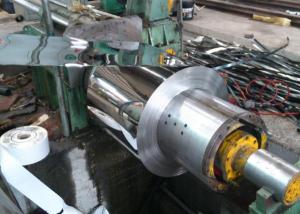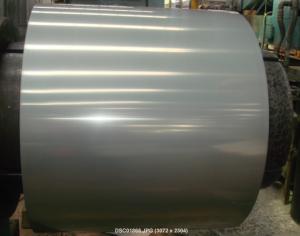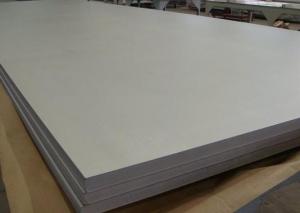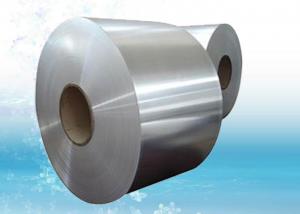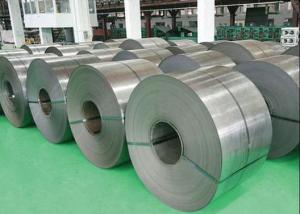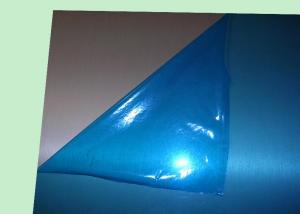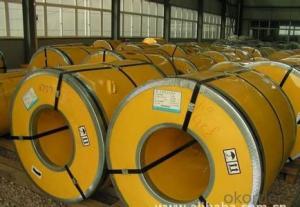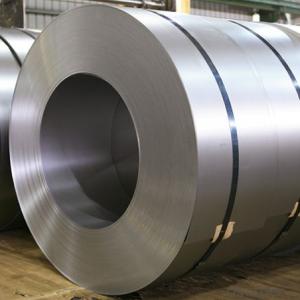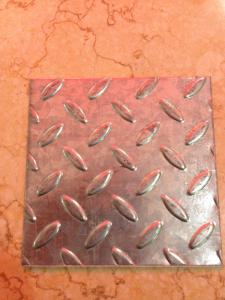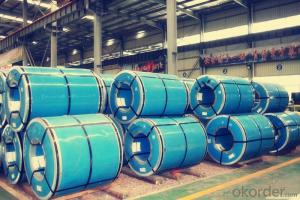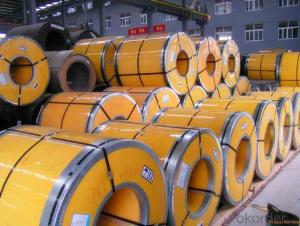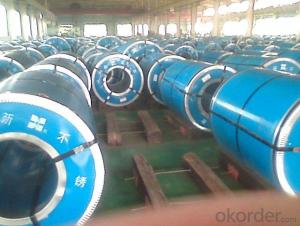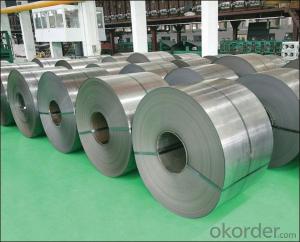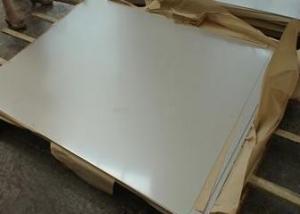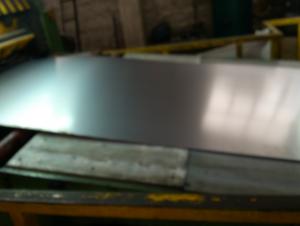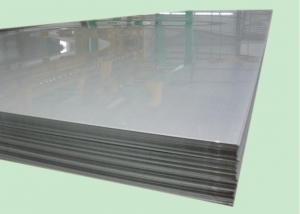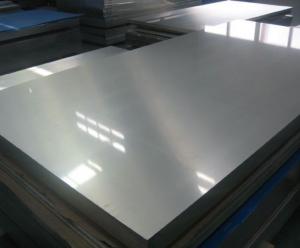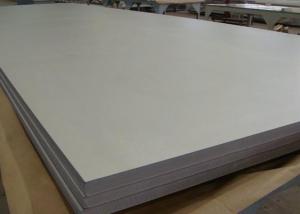Stainless Steel Coil and Sheet 304 Hot Rolled Cold Rolled High Quality
- Loading Port:
- China main port
- Payment Terms:
- TT OR LC
- Min Order Qty:
- 20 m.t.
- Supply Capability:
- 4000 m.t./month
OKorder Service Pledge
OKorder Financial Service
You Might Also Like
CHINA GOOD COLD ROLLED STAINLESS STEEL COIL AND SHEET 304
Product Details:
CR Stainless Steel Coil 304 | |
1.Standard : | JIS AISI ASTM |
2.Thickness : | 0.3-3.0mm |
3.Width: | 100-1500mm |
4.Length: | Depend on the weight |
5.MOQ: | 20ton |
6.Main Application | Building, decoration, tableware, kitchen, industrial, auto parts, etc. |
7.Third part inspection | buyer should pay for it if any |
8.Delivery Time : | within 10 days after the advance payment |
9.Packaging Detail : | Seaworthy packages or as the customers’ requirements |
Surface Treatment
2B | The surface brightness and flatness of 2B is better than 2D. Then through a special surface treatment to improve its mechanical properties, 2B could nearly satisfy comprehensive uses. |
NO.3 | Polished with abrasive belt of git#100#200,have better brightness with discontinuous coarse strait, used as inner and external ornaments for building, electrical appliances and kitchen utensils etc. |
NO.4 | Polished with abrasive belt of grit#150#180,have better brightness with discontinuous coarse stria, but thinner than NO.3, are used as bathtub buildings inner and external ornaments electrical appliances kitchen utensils and food processing equipment etc |
HL | Polished with abrasive belt of grit#150#320 on the NO.4 finish and has continuous streaks, mainly used as buildings ornaments elevators, door of building, frontal plate etc. |
BA | Cold rolled, bright annealed and skin-passed, the product have excellent brightness and good reflexivity like mirror, kitchen apparatus, ornament etc |
8K | The product have excellent brightness and prefer reflexivity can |
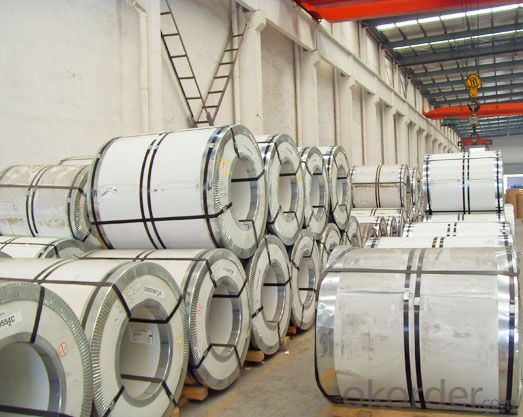
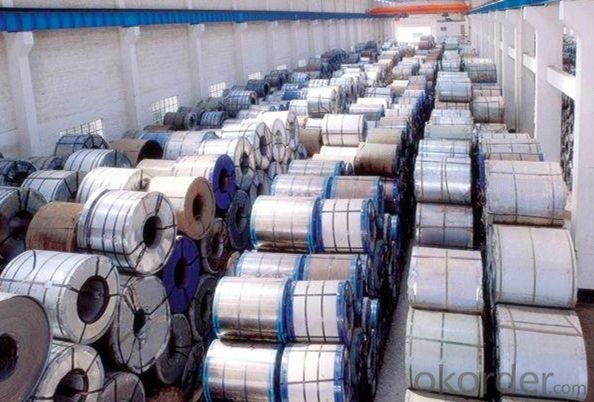
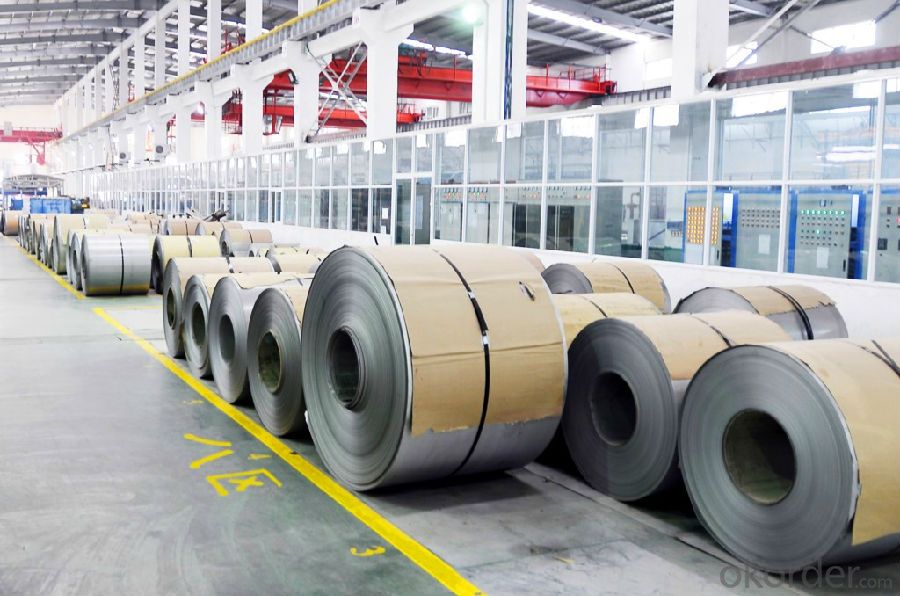
- Q: How do stainless steel strips perform in the presence of chlorine?
- Chlorine generally does not affect the performance of stainless steel strips. Stainless steel is renowned for its ability to resist corrosion and forms a protective layer of chromium oxide on its surface. This layer acts as a barrier, preventing chlorine from corroding the steel underneath. However, under certain circumstances, stainless steel can still experience localized corrosion, such as pitting and crevice corrosion, when exposed to high levels of chlorine or other corrosive substances. Therefore, it is crucial to consider the specific grade of stainless steel used, as some grades have higher resistance to chlorine. Additionally, proper maintenance and cleaning procedures should be followed to ensure the durability and effectiveness of stainless steel strips in environments with high chlorine content.
- Q: Can stainless steel strips be used in the manufacturing of kitchen appliances?
- Yes, stainless steel strips can be used in the manufacturing of kitchen appliances. Stainless steel is a popular choice for kitchen appliances due to its durability, resistance to corrosion, and ease of cleaning. Stainless steel strips can be utilized to create various components and surfaces in kitchen appliances, ensuring a sleek and modern look while providing excellent functionality.
- Q: Can stainless steel strips be used in electronic applications?
- Yes, stainless steel strips can be used in electronic applications. They are commonly used as connectors, terminals, and shielding materials in various electronic devices and components due to their excellent conductivity, corrosion resistance, and mechanical strength.
- Q: What is the price range for stainless steel strips?
- The price range for stainless steel strips can vary depending on factors such as thickness, width, grade, and quantity. Generally, stainless steel strips can range anywhere from $1 to $10 per pound or more.
- Q: Can stainless steel strips be used for precision instruments?
- Yes, stainless steel strips can be used for precision instruments. Stainless steel is known for its excellent strength, durability, and resistance to corrosion, making it an ideal material for precision instruments that require high accuracy and stability. Additionally, stainless steel can be easily fabricated into various shapes and sizes, allowing for customization and precise manufacturing of precision instruments.
- Q: Are stainless steel strips resistant to atmospheric corrosion?
- Yes, stainless steel strips are resistant to atmospheric corrosion. Stainless steel contains chromium, which forms a protective layer on the surface when exposed to oxygen. This layer, known as a passive film, acts as a barrier that prevents further corrosion from occurring. Additionally, stainless steel also contains other alloying elements such as nickel and molybdenum, which further enhance its resistance to atmospheric corrosion. Therefore, stainless steel strips are highly resistant to rust, tarnish, and other forms of atmospheric corrosion, making them an ideal choice for various applications exposed to outdoor environments.
- Q: What is the magnetic permeability of stainless steel strips?
- The magnetic permeability of stainless steel strips can vary depending on the specific grade and composition. Generally, stainless steel is known for its low magnetic permeability, meaning it does not respond strongly to magnetic fields. This is because of the presence of chromium, which creates a thin oxide layer on the steel's surface and reduces its magnetic properties. However, certain stainless steel grades like 430 and 446 can show slightly higher magnetic permeability than others. In conclusion, the magnetic permeability of stainless steel strips depends on their grade and composition, although stainless steel is not typically considered strongly magnetic.
- Q: Can stainless steel strips be used in conveyor systems?
- Certainly! Conveyor systems can indeed utilize stainless steel strips. Stainless steel, a material known for its durability and resistance to corrosion, is highly suitable for incorporation into conveyor systems. Its ability to handle heavy loads and endure high temperatures makes it particularly ideal for industrial settings. Frequently employed in the construction of conveyor belts, stainless steel strips offer both strength and stability, facilitating the seamless transportation of materials. Moreover, stainless steel's ease of maintenance and cleanliness ensure the long-lasting efficiency of the conveyor system.
- Q: What are the standard dimensions for stainless steel strips?
- The standard dimensions for stainless steel strips can vary depending on the specific application and industry requirements. However, some common standard dimensions include thicknesses ranging from 0.1mm to 3.0mm, widths ranging from 10mm to 600mm, and lengths ranging from 1000mm to 6000mm. These dimensions are commonly used in various industries such as automotive, construction, and manufacturing. It is important to note that these dimensions can be customized based on the specific needs of a project or application.
- Q: Are stainless steel strips resistant to galvanic corrosion?
- Yes, stainless steel strips are resistant to galvanic corrosion. This is because stainless steel is an alloy that contains chromium, which forms a passive protective layer on the surface of the steel. This layer acts as a barrier, preventing the steel from coming into direct contact with other metals and reducing the risk of galvanic corrosion. Additionally, stainless steel has a high resistance to corrosion in general, making it a preferred choice for applications where galvanic corrosion may occur, such as in marine environments or when in contact with dissimilar metals.
Send your message to us
Stainless Steel Coil and Sheet 304 Hot Rolled Cold Rolled High Quality
- Loading Port:
- China main port
- Payment Terms:
- TT OR LC
- Min Order Qty:
- 20 m.t.
- Supply Capability:
- 4000 m.t./month
OKorder Service Pledge
OKorder Financial Service
Similar products
Hot products
Hot Searches
Related keywords
